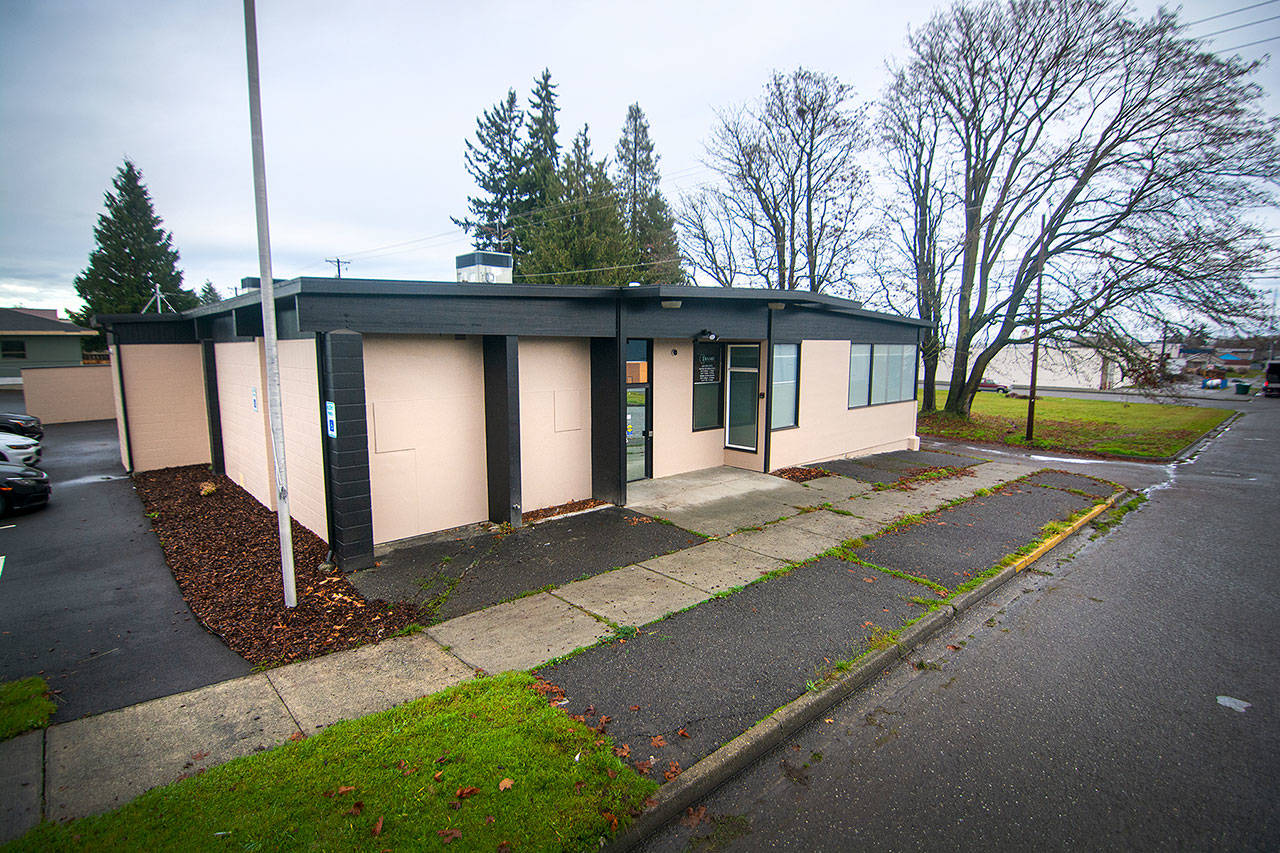PORT ANGELES — BAART Programs is preparing to open an Opioid Treatment Program in Port Angeles this month although funding for the first year is in question as the state changes how Medicaid funds are dispersed.
The company has asked for up to $750,000 from Clallam County and might close if funding is not found, said Tom Schwallie, vice president of development for BayMark Health Services.
“We’re really excited about opening our clinic up in Port Angeles and while there’s a lot of things up in the air, we’re confident we’ll get those issues resolved,” Schwallie said.
“We’re hoping to open before Thanksgiving.”
The state Health Care Authority has implemented Integrated Managed Care for Clallam, Jefferson and Kitsap counties, dissolving the Salish Behavioral Health Organization that had agreed to pay BAART Programs, a BayMark Health Services company, $62,500 per month next year until the clinic became profitable.
Scrambling for contracts
Now the for-profit company is scrambling to negotiate contracts with five Managed Care Organizations (MCOs), but a shortfall is still expected, Schwallie said.
BAART, which is opening the clinic at 716 S. Chase St., has asked Clallam County for a $750,000 grant next year, which, if approved, would come out of the county’s Chemical Dependency/Mental Health fund.
Schwallie said the clinic is awaiting final approval from the state opioid treatment authority and that funding is covered through the end of the year. If funding isn’t secured for next year, “we may have to close.”
BAART’s request is by far the largest out of any of the 13 agencies competing for the roughly $1 million that is available for next year.
The next highest request was by Peninsula Behavioral Health, which is seeking $176,000 to fill a shortfall created by the Medicaid transition.
The average request by other agencies was less than $100,000.
Clallam County provided the proposals after the Peninsula Daily News filed a public records request.
The total amount requested from all agencies is more than $2.2 million, more than double the amount of money available.
Whether the opioid treatment program stays open will largely depend on how many patients are acquired in early months, the negotiations with the five Managed Care Organizations and how the county chooses to administer its CD/MH funds.
“We’ve met with the MCOs and our hope is the MCOs agree with us by Jan. 1 so that we’ll have the continuity of care for our patients,” he said.
There are currently 26 Opioid Treatment Programs in the state. The BAART facility would be the first facility on the North Olympic Peninsula to offer daily dosing of methadone.
The next closest Opioid Treatment Programs are in Aberdeen, Tacoma, Seattle and Shoreline, forcing people who need that treatment to travel every day.
The clinic will provide counseling in individual and group settings, case management and dispensing of medications to treat opioid-use disorder.
A doctor will meet with patients to determine which medication — methadone, Suboxone or Vivitrol — is the best for the individual. While Suboxone and Vivitrol are available on the North Olympic Peninsula, this will be the first clinic to offer methadone.
According to BAART’s grant application, the clinic will need to see about 105 patients daily before it becomes profitable. Current estimates show that about 57 patients will enroll during the first 60 days, according to the application.
“If so, revenue from the MCO’s would fund part of the expenses and our first request would be approximately, $28,000 per month,” according to the application. “In any given month, if the revenue is above $62,500 … the Backstop would not be required for that month.”
The staffing model BAART is using assumes there will be about 200 patients. It includes a treatment center director, a physician, two dispensing nurses, a supervising counselor, receptionists and four counselors and case managers.
Whether the county will fund — or partially fund — the subsidy for next year is yet to be seen.
A proposal review committee made up of Behavioral Health Advisory Board members — whose organizations are not applying for funds — has made a recommendation to the the Behavioral Health Advisory Board. The board met Nov. 12, but because there was not a quorum of voting members, the board cannot take action until Dec. 10, said Director of Health and Human Services Andy Brastad.
Because a formal recommendation from the board hasn’t been made, Brastad said he would not disclose the committee’s recommendation.
“That list still needs to be discussed because we didn’t have a quorum,” Brastad said. “The full board still needs to be informed.”
His hope is that the Clallam County Board of County Commissioners will consider the funding recommendation in late December.
Clallam County Commissioner Mark Ozias, who also serves on the Salish Behavioral Health Executive Board, would not weigh in on the request because he didn’t want to interfere with the recommendation process. He did say it was the largest request he has seen from that fund.
“I’m aware that they asked for a grant to help support some of their operating costs,” Ozias said. “I’m anxious to see what the committee’s recommendations are, but it would be atypical for them to recommend that level of support. I haven’t looked at all the other proposals and I want to honor that process.”
________
Reporter Jesse Major can be reached at 360-452-2345, ext. 56250, or at jmajor@peninsuladailynews.com.

